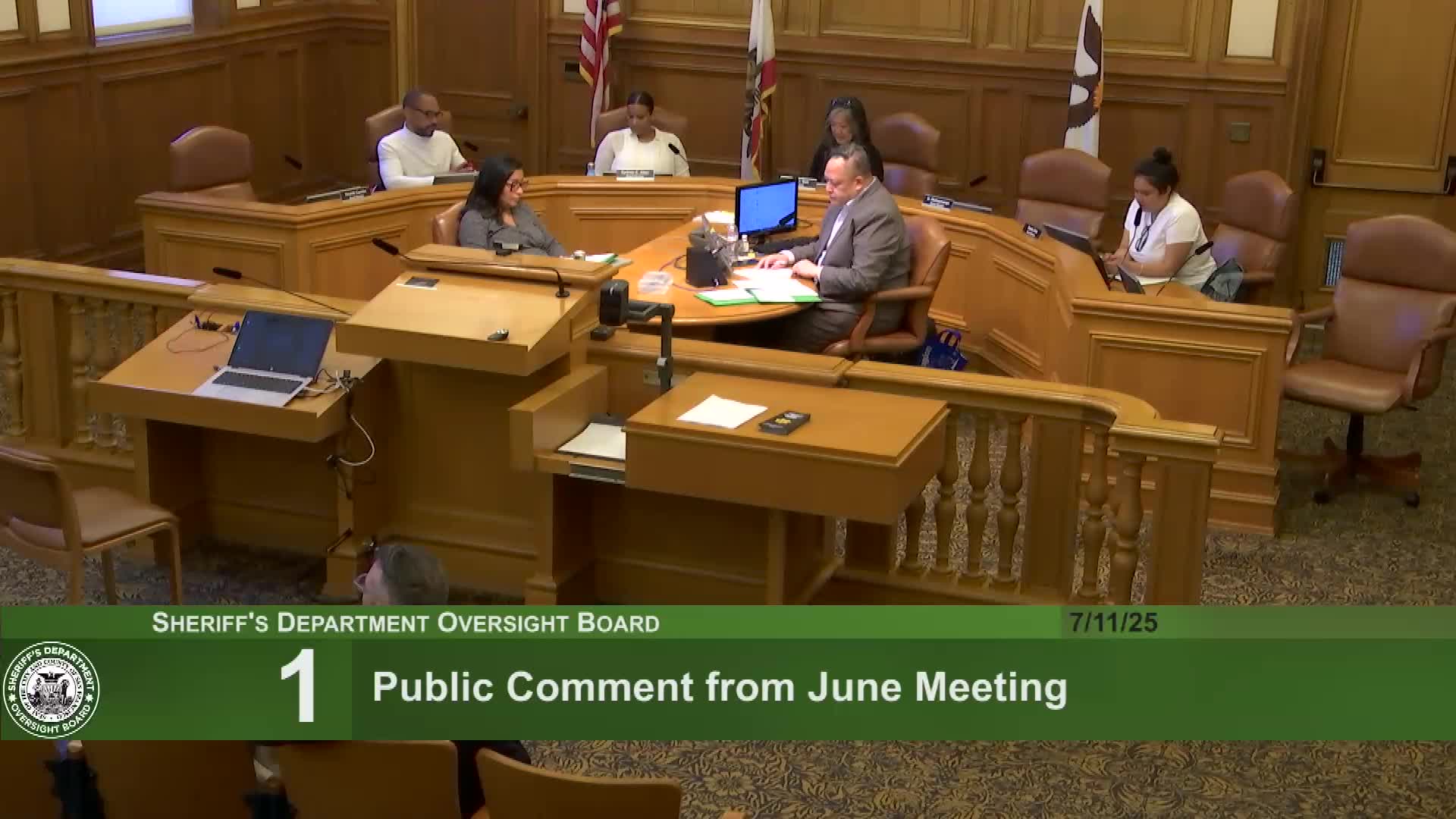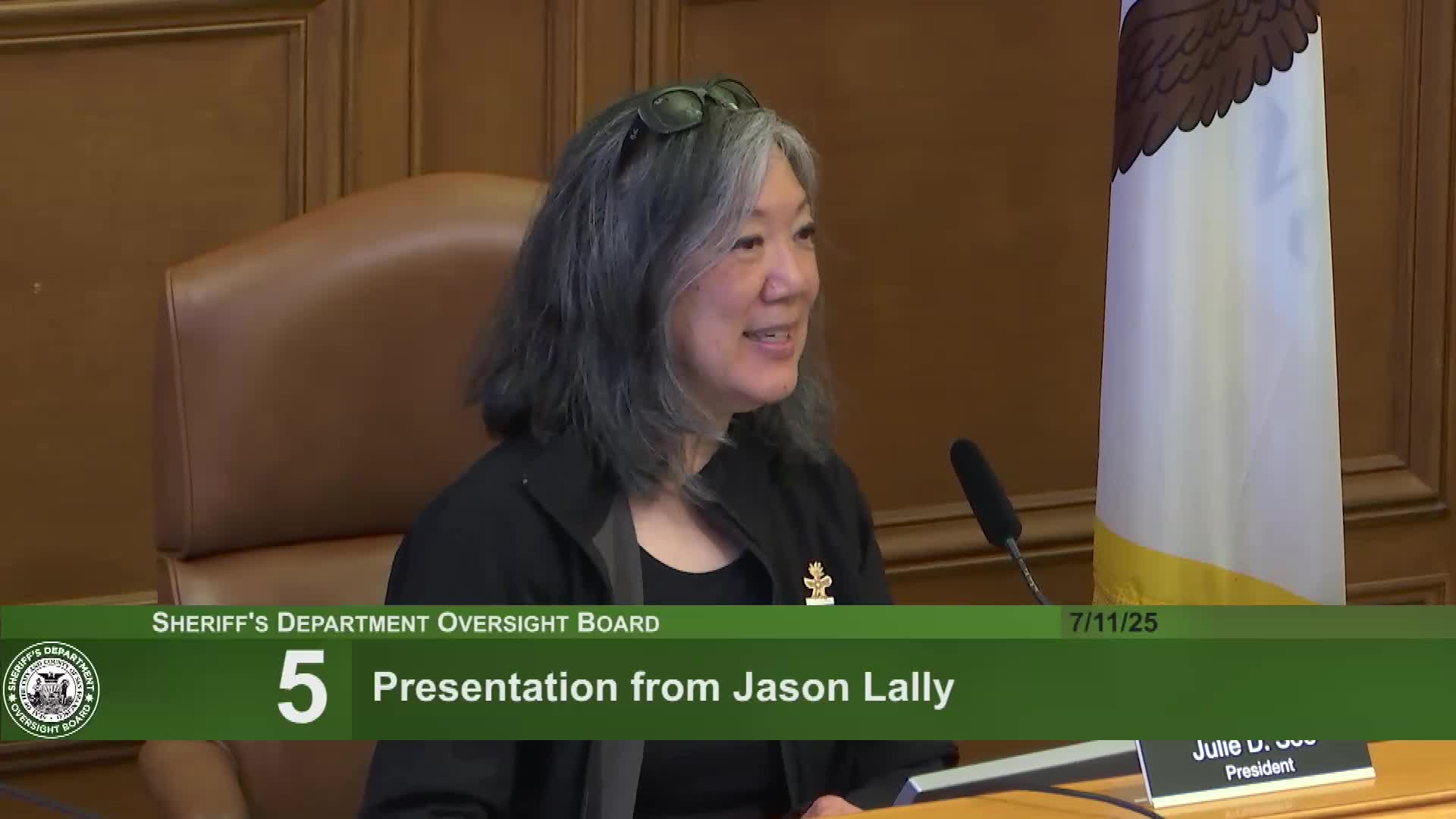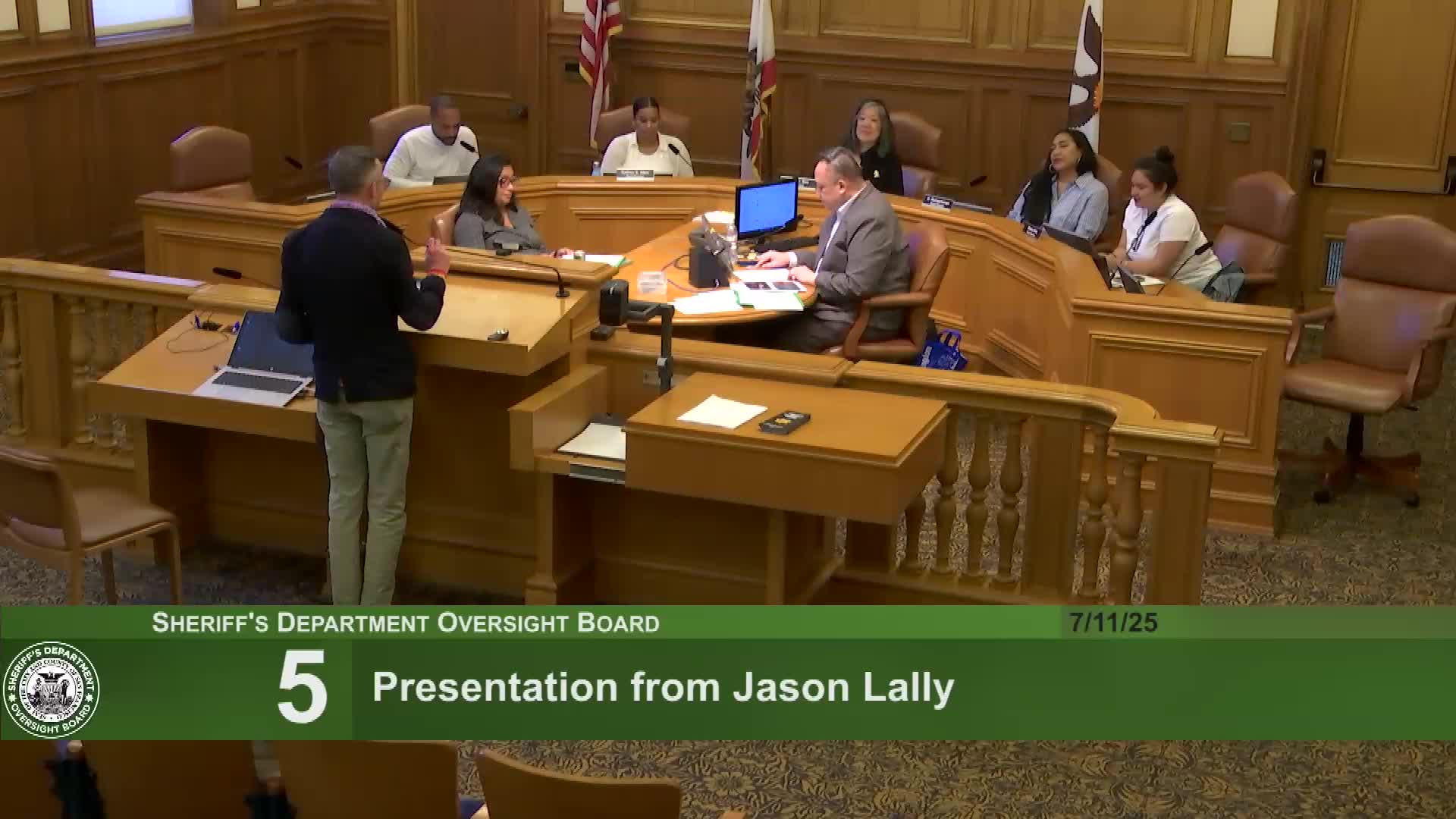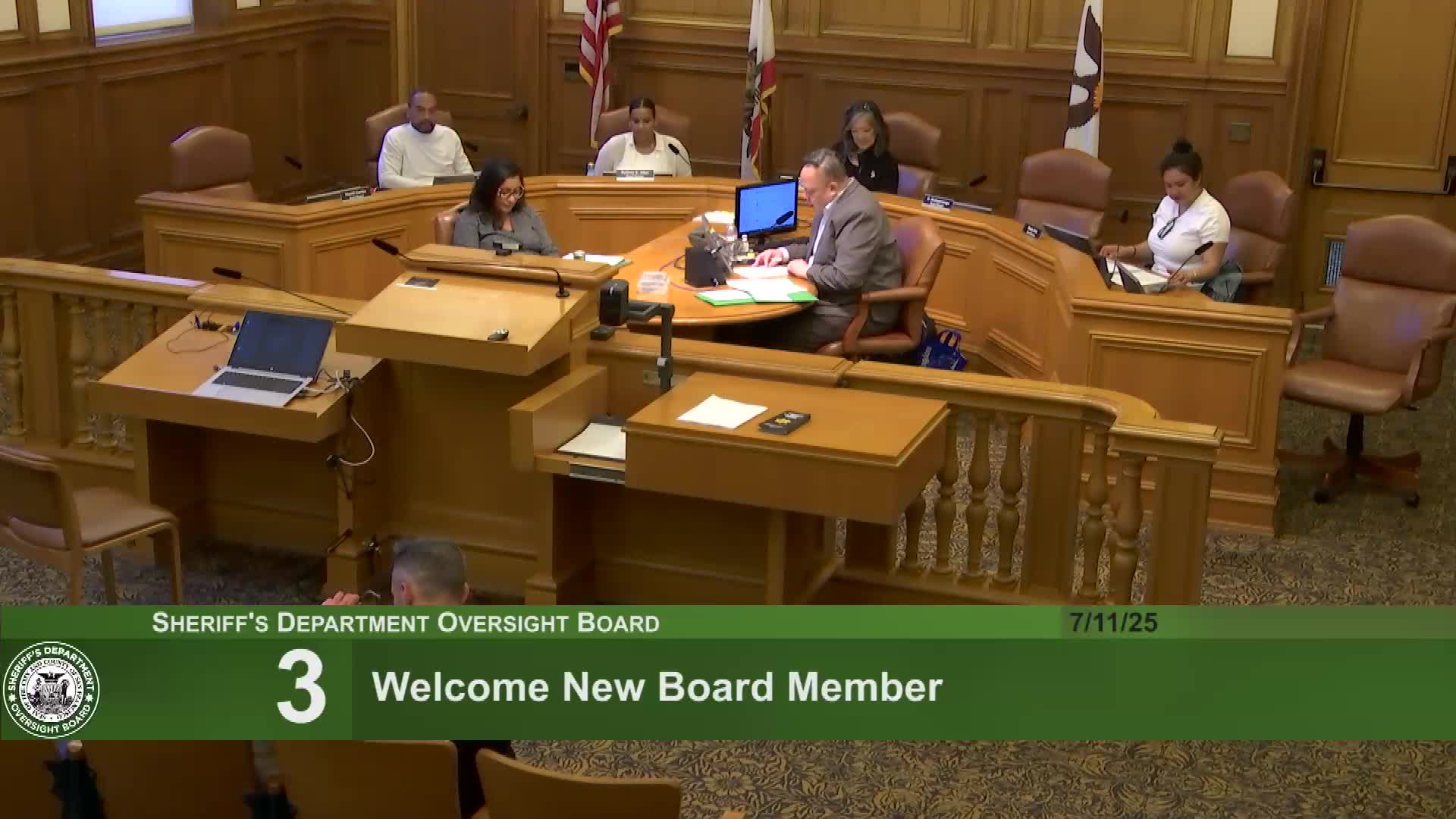Article not found
This article is no longer available. But don't worry—we've gathered other articles that discuss the same topic.

Oversight board approves June 6 minutes after procedural vote allowing abstention

Department of Police Accountability reports Q2 backlog, rising 'unfounded' findings as body cameras clarify incidents

State chief data officer urges small pilots, community input for jail data and AI tools

